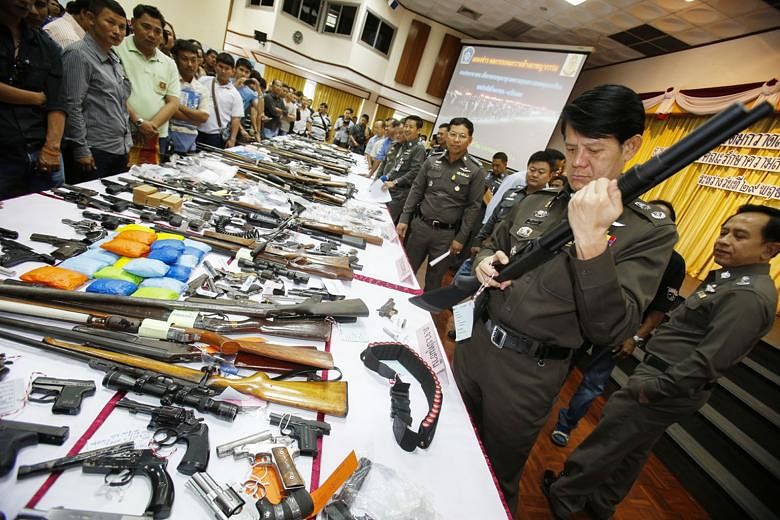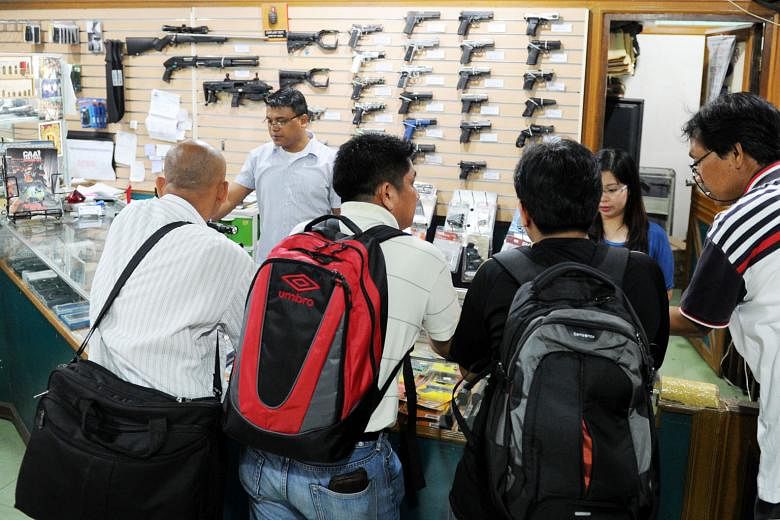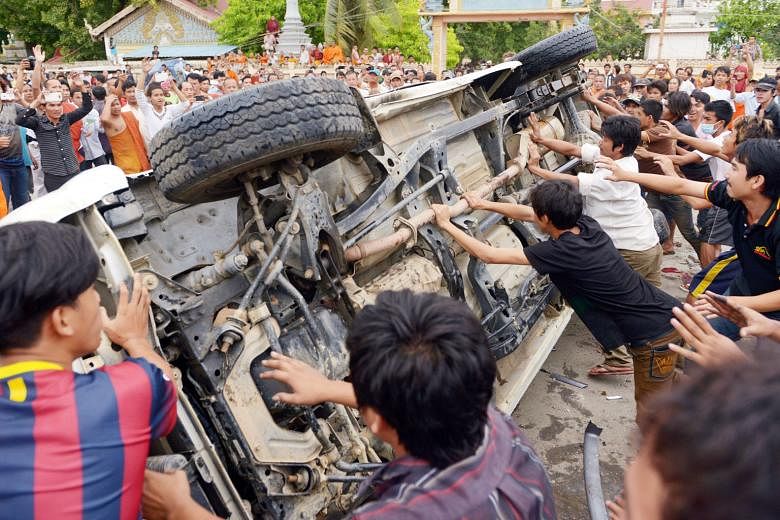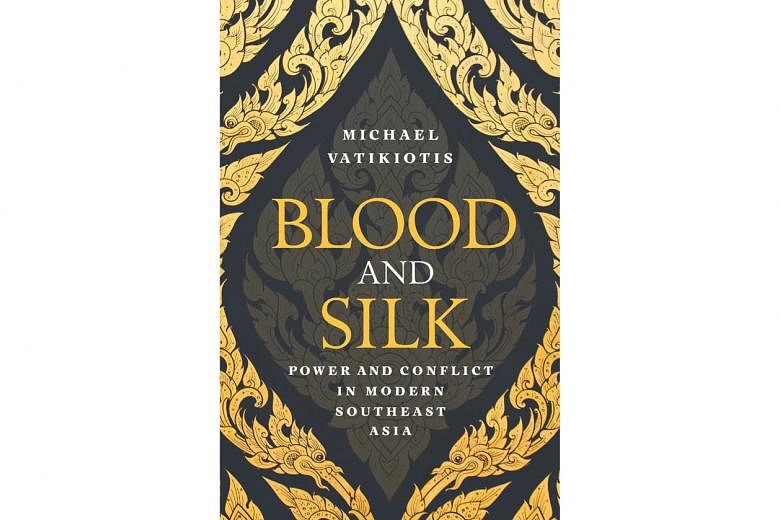The gun is never far removed from the political arena in South-east Asia. For a part of the world that has made so much social and material progress, and that regularly tops charts of economic growth and investment, why do so many countries of the region plumb the bottom of international indices measuring freedom and good government? Why does the region continue to struggle with democratic transition?
In the past three decades the economies have grown, education and other social indicators have vastly improved, and cities like Bangkok, Singapore and Kuala Lumpur have become among the most globally connected, modern and sophisticated places in the world.
Yet beneath these sleek metropolitan glass-and-steel carapaces lurks an enduring and seething underbelly of unmet popular aspiration suppressed by the effective concentration of power in the hands of a privileged few. The more people have prospered and advanced, the more they comprehend how badly their leaders serve them.
Remarkable economic growth and much-improved social indicators have not for the most part translated in South-east Asia into substantial political progress, defined in a broad sense as pluralistic democratic government. Nor has a constant average rate of as much as 10 per cent growth per annum for much of this time translated into a more equitable distribution of income and wealth. In fact, while overall rates of poverty have declined across South-east Asia, the startling reality is that the gap between rich and poor, and the share of income earned by the very rich has increased at an alarming rate.
One of the fundamental weaknesses of governance in South-east Asia is the lack of importance attached to institutions.
Power is wielded by personalities primarily for their own material benefit, rather than a greater good. Anyone who tries to challenge those in power is deemed illegitimate and their ill treatment is justified in terms of treachery.
One of South-east Asia's darkest secrets, for all the progress made by these societies in material terms, is their profoundly frustrating capacity to perpetuate conflict at huge cost to society for rather mundane and selfish reasons. Whether a simple matter of face, or some interpersonal power struggle, there is seldom a let-up in the climate of menacing violent conflict.
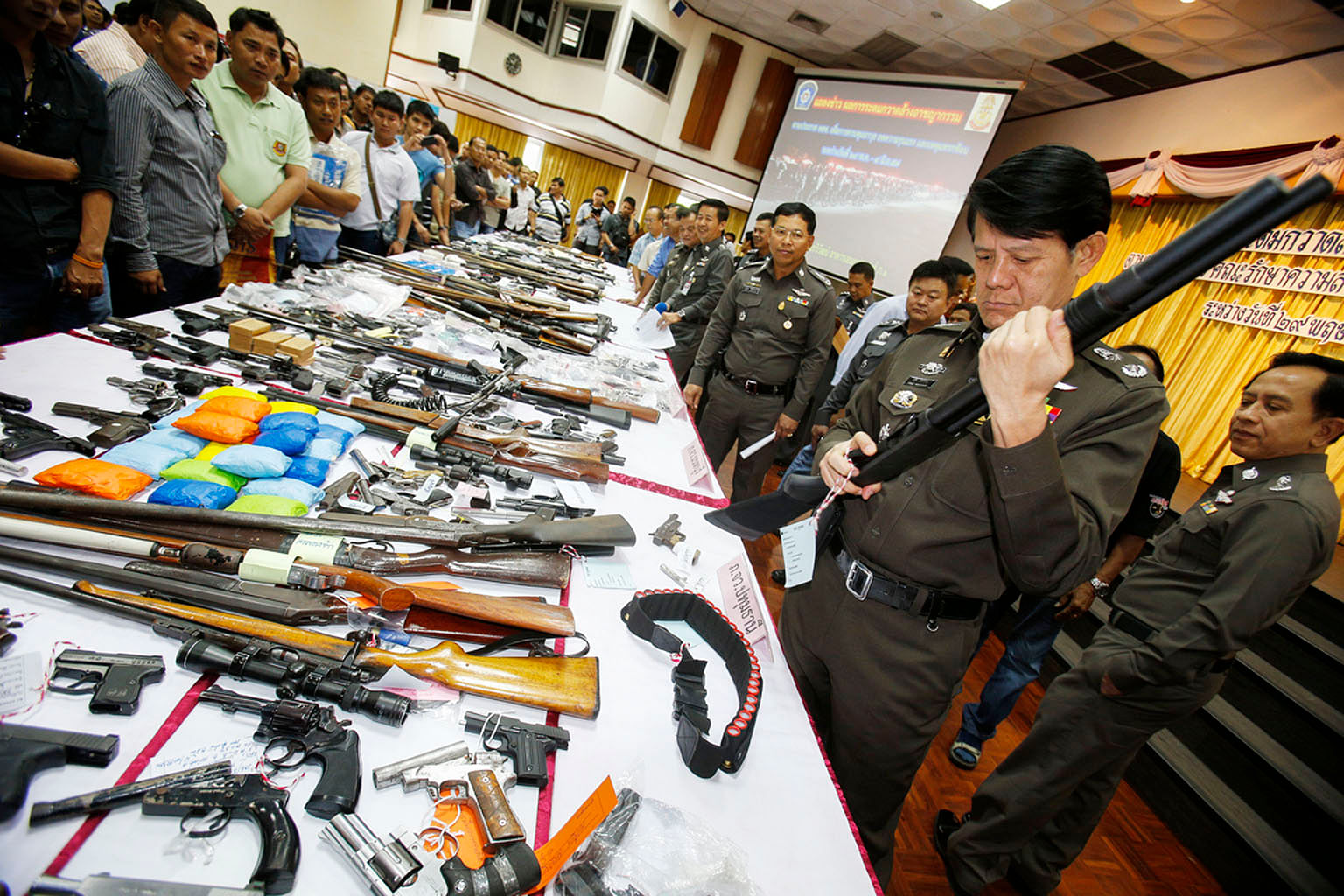
Political feuds fester and perpetuate hatred that in turn goes unreconciled, and which afflicts successive generations with heartfelt grievances. Violence leaves a trail of victims who are never recognised or compensated. No matter how progressive the outlook is in political or economic terms, no one seems committed to finding a just and lasting peace.
There is a brutal pragmatism about the way politics is conducted and all the collateral damage left in its wake. Motives ascribed to lofty ideals or policy goals in government handouts or interviews disguise naked personal interests. Saving face drives a lot of people to extreme positions from which they will not budge. Violence ensues.
ANNUAL DISPLAYS OF POLITICAL VIOLENCE
Over the past three decades, almost every year has been marked by the shadow of political violence.

This has seen a succession of leaders seize power either by force or through rigged and dodgy elections. Since the mid-1980s there have been three military coups in Thailand, violent army crackdowns on popular protests in Myanmar and Cambodia, outbreaks of civil unrest and religious or ethnic violence in Indonesia, detentions and arrests of opposition politicians in Malaysia, legal action taken against critics of the Government in Singapore, and two popular-protest movements interspersed by failed military coups in the Philippines. That's rather a lot of upheaval for a region of half a billion souls within a single generation.

In all this, the victims of political violence are often the least recognised. In Indonesia, there is nothing to commemorate the half million or so people who were killed in the anti-communist pogrom in the mid-1960s. Despite promises to consider a transitional justice process by successive democratically elected governments over the past decade, it was left to a people's tribunal convened in The Hague by members of Indonesian civil society in 2015 to generate a non-binding ruling by an informal panel of judges that indeed genocide had been committed.
And by what standard of human dignity has the Myanmar government decided that 1.3 million Muslim inhabitants of the far western Rakhine State cannot obtain citizenship and basic security?
The colonial legacy is often blamed - problems of unresolved or unwanted identity and integration that were the result of colonial whims. Thailand, a country which escaped the predations of colonial rule and the upheaval of a violent transition to independence, nonetheless has a long history of political violence. Student protests in 1973 and 1976 were ruthlessly suppressed.
Too much of the violence associated with politics in South-east Asia stems from elite power struggles of one sort or another - elephants trampling those in their path. These elites couldn't care less how much the masses suffer or die each time they quarrel among themselves.
-

BLOOD AND SILK: POWER AND CONFLICT IN MODERN SOUTHEAST ASIABy Michael Vatikiotis
Published by Weidenfeld & Nicolson. The book is available at major bookstores for $29.95 including GST. It is also available online: https://singapore.kinokuniya.com/bw/9781474602013
At the height of the clashes in central Bangkok between red-shirted supporters of the former Thai prime minister Thaksin Shinawatra and the unelected royalist government led by then Prime Minister Abhisit Vejjajiva in 2010, I got on the phone with Mr Abhisit (in my capacity as a mediator) to appeal for a ceasefire so that loss of life could be avoided. It was clear that, once the army moved in and crossed the bamboo and old rubber-tyre barricades, blood would be spilt. On purely humanitarian grounds, I argued, a respite was justified. But all he could say at the end of his mobile phone was that it was too late. His voice sounded strained, but detached.
Meanwhile, sitting comfortably in exile, Mr Thaksin was also reluctant to be drawn into a deal. Brinkmanship was the order of the day. The next day, as I watched the armoured troop carriers roll over the barricades, it hit me: perhaps there is no struggle for the greater good, only a scramble by a few to keep their positions and stay in power by any means possible.
There is something egregiously callous about the casual disregard competing political actors appear to have for the deaths they leave in their trail. It was the same in Indonesia, even as a democratic transition got under way.
In November 1998, after Suharto's fall, I watched soldiers shooting at students registering their disappointment with early reforms of the purportedly post-authoritarian era. I knew that some of the leading reformist parliamentarians had gathered at a nearby hotel, so I left the gruesome scene and rushed over.
"They're shooting at students," I railed in front of a group of politicians sipping coffee in the lounge. "Can't you go and do something?"
The thought hadn't occurred to them.
Even during periods of relative calm, there is little ordinary citizens can do to protect themselves from the power of the state. Across South-east Asia, ordinary citizens of no importance or status have given up their lives struggling for justice and freedom. Their families have no recourse to justice, the victims often just bundled away in the dark and murdered in cold blood, their bodies disposed of like rubbish.
TRAGIC MANDALA OF VIOLENCE
One of the more frequently used metaphors in South-east Asia is that when elephants fight, stay out of the long grass - an apt reference to the manner in which political elites clash and leave suffering and tragedy in their wake.
Sadly, those who get trampled are the ordinary, nameless people, like the victims of political violence in Thailand, or the countless millions who lost parents, brothers, sisters, friends and other relatives in the senseless orgy of anti-communist purges across Java and Bali in the mid-1960s.
Often these people have been aroused to protest by shallow, empty and rhetorical promises of a better future.
They matter because they stand up and refuse to allow tyranny and impunity to prevail. Almost always, their hopes are dashed, beaten to a bloody pulp and left by the side of a road, somewhere with no hope of justice for the victims: a tragic mandala of perpetual violence.
And always, there is wishful thinking that after the death and destruction is tallied and the guns are laid down, lessons will have been learned and peace will prevail.
Nothing could be further from the truth. Politics is a nasty, often brutal business in South-east Asia, a key driver of conflict.
-
Michael Vatikiotis, who is based in Singapore, is the Asia regional director of the Centre for Humanitarian Dialogue, a Geneva-based peacemaking organisation.
